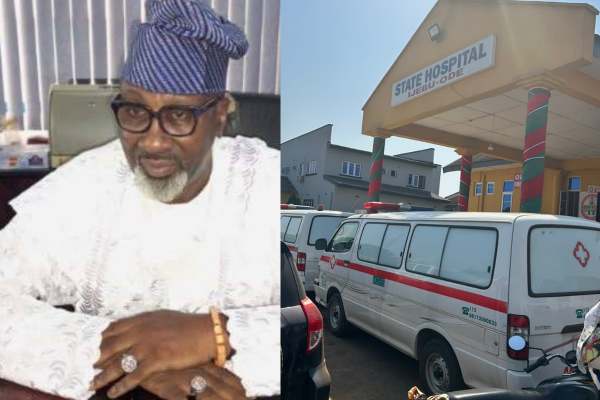We cannot turn our General hospitals into death center!
Have you ever visited a general hospital in Nigeria? If you have, then you probably understand the frustration and disappointment that comes with seeking medical care in our country. I recently had to accompany a friend to a hospital in Ijebu Ode, and what I witnessed was nothing short of appalling. It made me question how we, as a people, could allow such a disregard for human life and well-being to persist.
The ordeal began when my friend had a medical crisis and collapsed in his home. Thankfully, his family and friends were concerned when they couldn’t reach him and quickly took action. After breaking into his house and finding him in a helpless state, they rushed him to the general hospital in Ijebu Ode.
As we entered the emergency room, my eyes were immediately drawn to the dilapidated and dirty emergency stretcher. It was a stark reminder of the neglect and lack of urgency that seemed to plague the entire hospital. In our desperation, we had to lift my friend onto the stretcher ourselves, as there seemed to be no staff available to assist us.
Once we finally managed to get some attention, the process of obtaining a medical card for my friend took over an hour. It was clear that the hospital was severely understaffed and unequipped to handle emergency situations. This inefficiency and lack of readiness were shocking and deeply concerning.
In a proper medical emergency, the first step is the triage process, where a patient’s condition is assessed and prioritized. However, this essential step seemed to be overlooked or poorly executed in this hospital, leading to significant delays and confusion.
As we waited for my friend to receive the necessary care, I couldn’t help but think about the urgent need for effective management of our healthcare system. It’s crucial to focus on compliance, fraud prevention, and the overall improvement of service delivery in our general hospitals.
Preventing healthcare fraud is a complex and challenging task that requires a multi-faceted approach. Healthcare providers must understand and comply with fraud laws, improve their billing and coding processes, and ensure accurate clinical documentation to avoid misconduct and potential investigations.
Collaboration is also key in this effort. The Healthcare Fraud Prevention Partnership (HFPP) emphasizes the importance of data sharing and research to proactively identify and disrupt fraudulent activities in the healthcare sector. Additionally, the use of advanced technologies such as AI and machine learning can aid in analyzing vast amounts of data to detect patterns and anomalies that may indicate fraudulent behavior.
In conclusion, the management of our general hospitals must be overhauled to prioritize service delivery and fraud prevention. Only by implementing a comprehensive strategy that includes compliance, collaboration, and advanced technologies can we begin to address the systemic issues that plague our healthcare system. It’s time to demand better for ourselves and future generations. No one should have to endure the kind of neglect and incompetence that I witnessed in that hospital in Ijebu Ode. It’s time for change, and it starts with holding our healthcare
Abdulfalil Abayomi ODUNOWO
National Chairman AATSG.
17th December, 2023.











